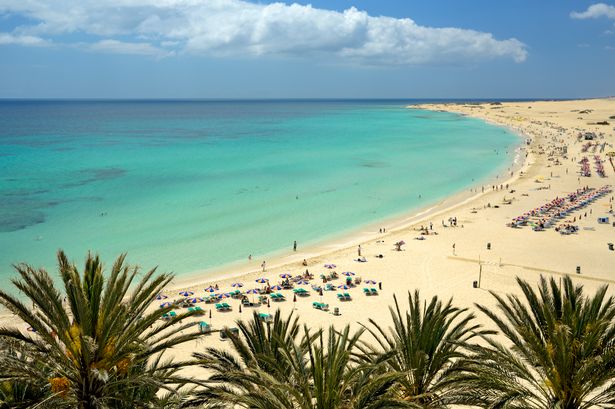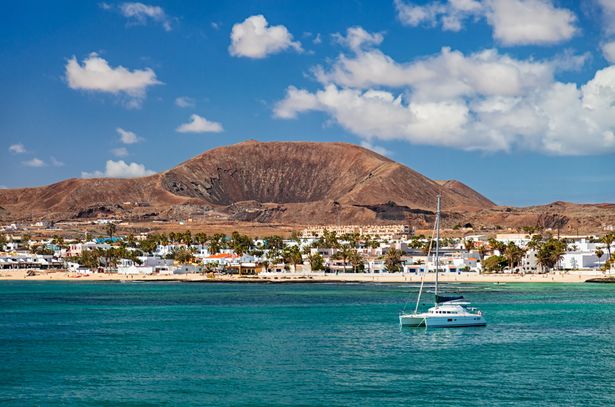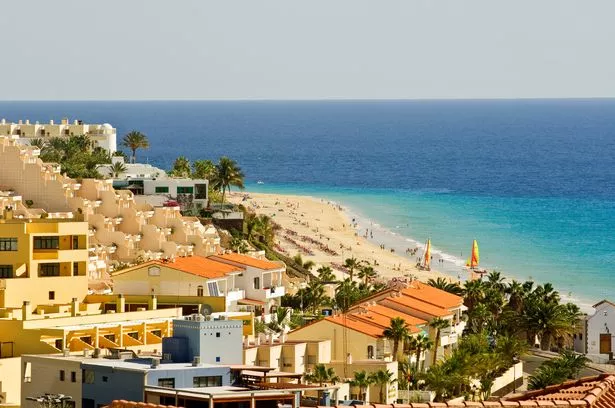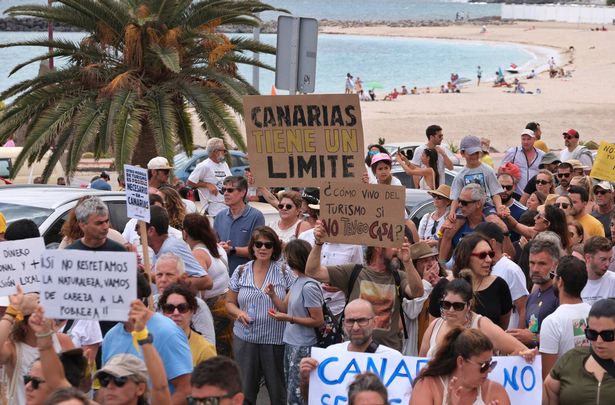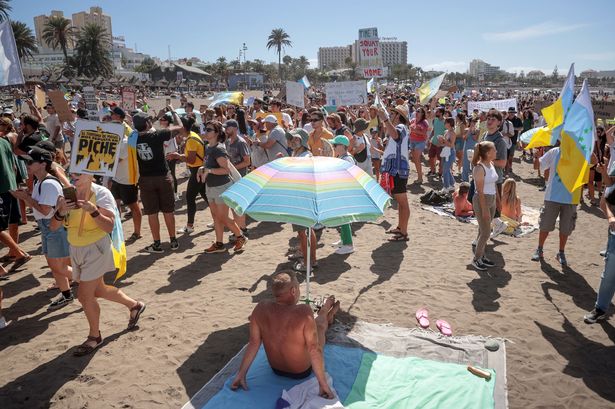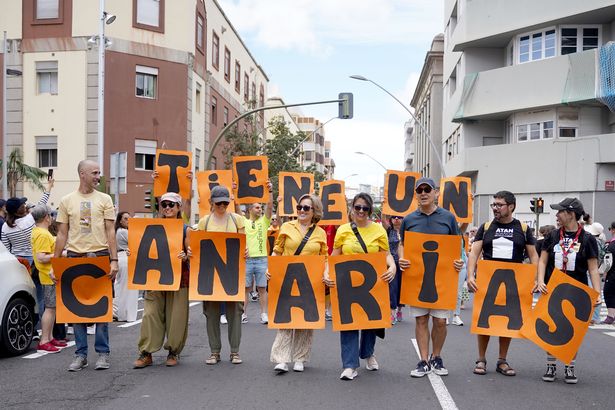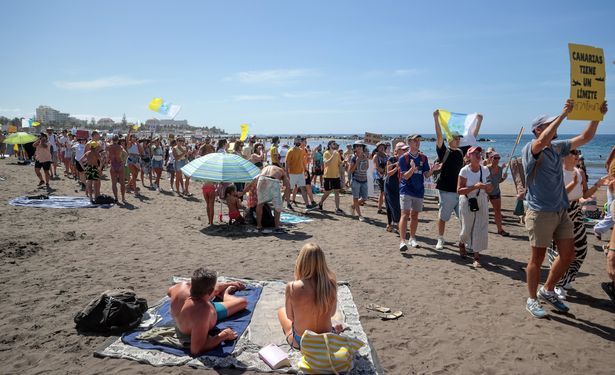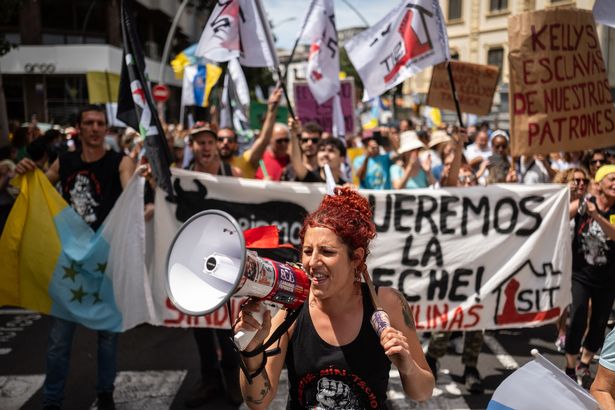The surge in tourism has been primarily driven by holidaymakers from the UK, with Great Britain overtaking Germany as the island’s leading market in the first quarter of 2025
The Canary Islands have been a firm favourite destination for sun-seeking sightseers from the shores for decades, but one isle in particular is witnessing a significant increase in tourism this year.
While Lanzarote has been lauded for its measured and sustainable approach to managing visitor growth, Fuerteventura has experienced the highest surge in tourist arrivals among the Canary Islands during the first quarter of 2025, sparking concerns about the island’s capacity to cope with the rapid influx.
According to official figures, Fuerteventura welcomed a staggering 758,195 tourists between January and March, marking a 7.8 per cent increase compared to the same period last year. This translates to an additional 55,120 visitors in just three months — a substantial jump that far outpaces the growth seen on neighbouring islands.
In contrast, Lanzarote recorded a rise of 1.9 per cent, while Gran Canaria and Tenerife experienced increases of 2.8 per cent and 2.1 per cent, respectively.
READ MORE: Canary Islands declares ‘pre-emergency’ as warning issued to British tourists
Fuerteventura’s growing tourist numbers have been primarily driven by British holidaymakers, with the UK overtaking Germany as the island’s leading market, with 243,181 British tourists arriving in the first quarter — a 13.2 per cent increase from the same period in 2024. Meanwhile, German visitor numbers declined slightly by 1.3 per cent, from 239,500 early last year, to 236,398 in 2025.
Fuerteventura’s tourism boom is somewhat of a double-edged sword. The increase in visitors boosts the local economy, supporting jobs in hospitality, retail and transport, but the rapid influx raises serious questions about the island’s infrastructure and environmental sustainability.
Unlike Lanzarote, which has been praised for its strategic tourism management, including controlled development and investment in sustainable infrastructure, Fuerteventura seems to be struggling to keep pace with demand. The island’s roads, water supply, waste management systems and accommodation capacity are all under mounting pressure.
Want the latest travel news and cheapest holiday deals sent straight to your inbox? Sign up to our Travel Newsletter
Local authorities and residents have voiced concerns about overcrowding, environmental degradation and the strain on natural resources, particularly in popular beach areas and protected natural parks — there have even been anti-tourism protests.
On Sunday, May 18, residents from all over the Canary Islands took to the streets in coordinated mass demonstrations in 15 locations — including in Fuerteventura — to demand an end to what organisers called an “unsustainable and exploitative economic model”.
The Canary Islands have long been a model for balancing tourism with environmental preservation, but Fuerteventura’s current trajectory could threaten this stability. The island’s unique landscapes, including its dunes and marine ecosystems, are vulnerable to overcrowding. Without careful planning and investment, the very attractions that draw visitors to the isle could be harmed, undermining long-term tourism prospects.
Experts suggest that Fuerteventura needs to adopt a more sustainable tourism strategy, similar to Lanzarote’s approach. This could include measures such as limiting the number of new hotel developments, enhancing public transport options to reduce traffic congestion, promoting eco-friendly tourism activities, and investing in renewable energy and water conservation technologies.
In November 2024, Jessia de Leon, the Canary Islands’ Minister of Tourism, announced that the archipelago intends to improve on the previous concept of ‘sustainable tourism’ after unveiling a groundbreaking new approach, which focuses on three main areas: new regulatory framework, transforming tourist spaces and climate action. She said: “It’s about erasing or at least compensating for the footprint left by those who visit the Canary Islands.”
Fuerteventura remains a vibrant destination beloved by Brits, but one that stands at a crossroads. It must urgently address the pressures of its newfound popularity to ensure a sustainable future.
Has rising anti-tourist sentiment put you off from visiting the Canary Islands? Let us know in the comments section below
